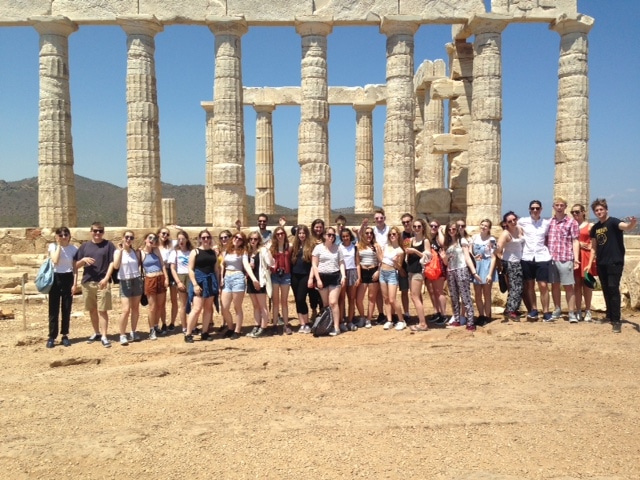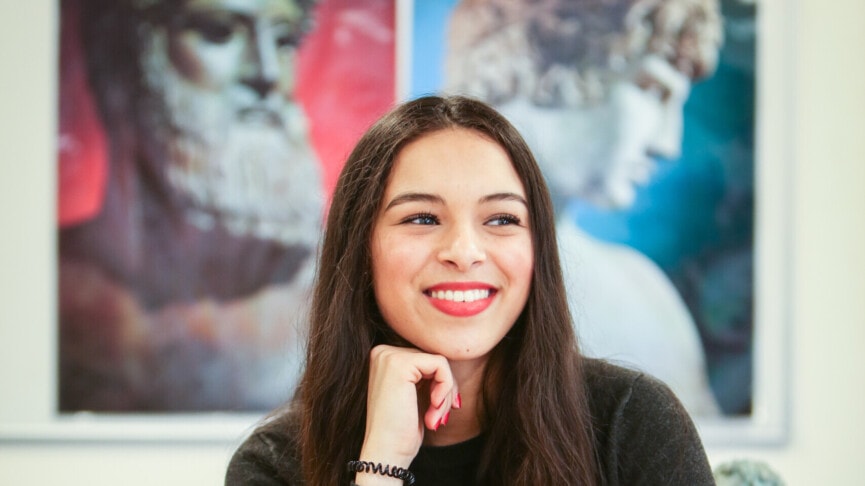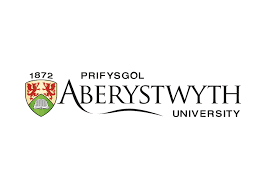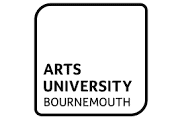Overview
Classical Civilisation is concerned with the Ancient Greek and Roman worlds. As a result this subject covers an enormous range of diverse disciplines: the history, literature, politics, philosophy, art and architecture of the ancient Greeks and Romans.
Entry Requirements
In addition to the College Entry Requirements, to qualify for this course you will also need to achieve a minimum of:
• Grade 4 in GCSE English Language, and if taken, a Grade 4 GCSE Classics.
Course Details
In the first year you will study Homer’s Odyssey, the epic poem which chronicles the adventures of the Greek hero Odysseus, ‘the man of many twists and turns’, as he struggles to return to his island home after a decade away fighting in the Trojan War. Through focused literary analysis, you will investigate the cultural values of Greek society reflected through Homer’s worlds of gods, magic and monsters.
You will also broaden your understanding of ancient Greece by examining its physical remains – the statues, temples and ceramics produced during 650 – 300BC. These artefacts provide invaluable insights into the lives and beliefs of the ancient world. You will analyse the formal qualities of these artefacts as well as the political, philosophical and religious ideas which they convey.
In the second year you will read the great national epic of ancient Rome – Virgil’s Aeneid. The poem’s narrative focuses on the Trojan hero Aeneas, his escape from the destruction of Troy and his struggles to establish a new city for the Trojan refugees. However, the poem’s mythological narrative is inextricably linked to the historical context that produced it. Virgil was commissioned to compose his masterpiece by Augustus, Rome’s first Emperor. Does this make the Aeneid no more than propaganda? Is Virgil an apologist for a dictatorial regime? Or does his poem raise unsettling questions about the nature of power and the price of civilisation?
The course’s final component focuses on the personal lives of the ancient Greeks and Romans – their beliefs about love and relationships. The ancient world’s ideas about gender and sexuality were very different from those of the modern world. The syllabus explores these cultural assumptions through analysis of Greek and Latin love poetry. The erotic poetry of Sappho celebrates the joy and pain of intense romantic desire, whereas Ovid provides a poem bursting with tips for the would-be pick-up artist. Philosophical perspectives of love are also investigated. Is being in love something we should celebrate and revel in? Or is the romantic desire something we should be cautious about, and aim to moderate or control?
Assessment
Assessment is by three written exam papers. Each paper consists of essay style questions and source analysis.
Subject Combinations
A study of Classical Civilisation complements many other popular A Levels, including English Literature, Art, Politics, Philosophy, History, Drama and Theatre, as well as the study of languages.
University Destinations
Classical Civilisation A Level is a highly respected qualification, with 90% of our students progressing onto University.
Here are some typical University Destinations that our Classical Civilisation A Level students go on to. Click on a destination to see some examples of courses they have taken;
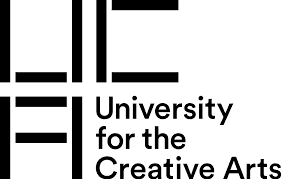
University for the Creative Arts
Typical courses: Art Foundation / Foundation diploma in arts and design

University of Exeter
Typical courses: Ancient History and Archaeology with Study Abroad / Classical Studies and Theology

Nottingham Trent University
Typical courses: Business Management and Marketing / Design for Stage and Screen (Costume Design and Construction)
Careers
The study of Classical Civilisation encourages you to develop the critical and evaluative skills which will enable you to study a wide range of disciplines in Higher Education. It will not only prepare you for Classics or Ancient History at university, but will enhance your understanding of English Literature, History, Philosophy, Politics or Art.
FAQs
What skills will I need and develop on this course?
This course will teach you research skills and how to select and evaluate relevant literary, cultural or historical sources. The course will also develop your essay writing skills through teaching you how to analyse, evaluate and interpret a range of different material, including primary classical sources, whether texts in translation or physical evidence.
Can I take three essay-based subjects?
Yes! It is definitely manageable.
How much studying is there each week?
At Esher, as with all your A Levels and BTEC subjects, you will have four timetabled lessons of Classical Civilisation a week. In addition to this, we expect you to do between six and seven hours of independent study a week which can include watching videos, reading, practising questions or making notes.
What extra support/enrichment activities are on offer?
The department offers subject tutorials as well as the opportunity to attend a conference with leading academics. Throughout the year you will have an opportunity to attend a variety of lectures on specific units you are studying on the course. Every year the Classics Department runs trips to Greece as a way of enriching your understanding and appreciation of the classical world, its society and values. We also organise visits to museums and plays in London locations.
